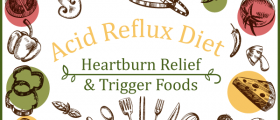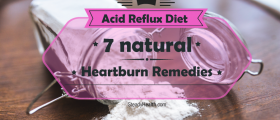
Indigestion, also known as dyspepsia, includes a number of symptoms. Most often there is heartburn, vomiting, bloating and nausea. It is usually described as a feeling of discomfort or pain in the upper abdomen. Many women experience indigestion during pregnancy, especially in later stages, when the baby is more developed. This is mainly caused by the changes that occur in a woman’s body during pregnancy. The hormonal levels change and the pressure on the abdomen gets greater.
The symptoms of indigestion during pregnancy are the same as any other cases of indigestion. Pain or discomfort in the abdomen and chest region usually come after eating or drinking, sometimes immediately and sometimes with a delay. Indigestion may occur at any stage of pregnancy, although it is more frequent during the third trimester.
Indigestion is caused by the stomach acid coming in contact and irritating the sensitive lining of the digestive system, called mucosa. It does not necessarily require medical care and there are ways a woman can prevent and relieve indigestion at home.
Habits like smoking and drinking should be avoided during pregnancy. Smoking affects the health of both the mother and the baby, and it also causes indigestion. Chemicals contained in cigarette smoke cause acid reflux by relaxing the ring that separates the gullet from the stomach. Drinking alcohol generally has negative effects on the digestive system and is potentially dangerous for the baby’s health. It is recommended to avoid alcohol completely during pregnancy, but if a woman chooses to drink while pregnant, the amount of alcoholic beverages should not be more than 1-2 units of alcohol once or twice a week. One unit means half a pint of beer, 25 milliliters of spirits or 50 milliliters of fortified wine.
Improving the eating habits and diet is important for preventing indigestion. Large amounts of food are not recommended. It is better to divide food into several lighter meals. The daily intake of calories should be 2000 calories, which is the recommended intake for women, plus 300 extra calories for pregnant women. The diet should include a wide variety of foods, with balanced amounts of carbohydrates, proteins, fruit and vegetables as well as dairy products.
There are products that many women find to be triggers of indigestion during pregnancy. Those include coffee, carbonated drinks, spicy and greasy food. In addition to this, a woman should keep track of what food or beverage cause symptoms of indigestion in her body and try to avoid them.
Sleeping with the Head and shoulders slightly propped up on the pillows helps relieve symptoms of indigestion, as this position prevents stomach acid from moving up into the gullet.
In some cases, additional medication can be advised by a doctor in treating indigestion. This usually includes antacids, which neutralize the acid, and alginates. Alginates form a barrier inside the stomach and prevent acid reflux. Both antacids and alginates are safe for use during pregnancy, if taken as prescribed and without exceeding the prescribed dosage.

















Your thoughts on this
Loading...